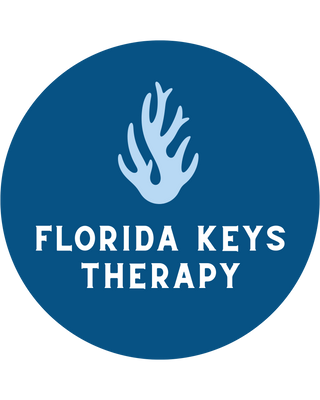The Transformative Power of Individual Therapy: A Path to Personal Healing

When life feels overwhelming, or emotional struggles become too difficult to manage on your own, seeking help can be the first step toward healing. Individual therapy offers a personalized and effective way to work through mental health challenges. Whether dealing with anxiety, depression, or trauma, individual therapy provides a dedicated space to explore your feelings and begin the healing process. At Calming Concepts, we offer expert guidance to help individuals reclaim control over their mental health.
What is Individual Therapy?
Individual therapy is a form of counseling where a person works one-on-one with a licensed therapist to address personal challenges, mental health issues, and emotional struggles. The primary goal of individual therapy is to help clients gain insight into their thoughts, behaviors, and emotions, leading to improved mental well-being and a healthier outlook on life.
Unlike group therapy, which involves multiple participants, individual therapy focuses entirely on you. This private setting allows for an in-depth exploration of your specific concerns, providing the therapist with a clearer understanding of your unique challenges and helping you develop tailored strategies for growth.
The Benefits of Individual Therapy
There are many reasons why individual therapy can be highly beneficial for those seeking mental health support. Some of the most significant advantages include:
1. Personalized Treatment
One of the key benefits of individual therapy is the individualized care you receive. Since therapy is focused on you alone, the therapist can tailor the treatment plan to suit your specific needs, goals, and challenges. Whether you’re coping with grief, managing anxiety, or navigating a difficult life transition, the therapist will work with you to develop a plan that best supports your journey toward healing.
2. Confidentiality and Privacy
Privacy is a significant concern for many individuals seeking therapy, and individual therapy offers a safe and confidential environment where clients can express themselves freely without fear of judgment or unwanted exposure. This confidentiality helps create a trust-based relationship between you and your therapist, allowing you to be open and honest about your feelings and experiences.
3. Improved Self-Understanding
Through individual therapy, many people gain a better understanding of themselves. By exploring your thoughts, emotions, and behaviors with the help of a trained therapist, you can identify underlying patterns that may be influencing your mental health. This increased self-awareness is a crucial step toward making positive changes and improving overall well-being.
4. Effective Coping Strategies
Another key benefit of individual therapy is learning practical coping strategies to handle stress, anxiety, and other emotional challenges. Your therapist will provide you with tools to manage difficult situations, enhance emotional regulation, and develop healthier responses to stressors in your life. These strategies will serve you long after your therapy sessions have concluded.
5. Emotional Support and Validation
Sometimes, all you need is someone who will listen. Individual therapy provides a compassionate, non-judgmental space for you to talk about your feelings and struggles. Your therapist will validate your experiences and emotions, making you feel heard and understood, which can be immensely helpful in healing emotional wounds.
Common Types of Individual Therapy
Several therapeutic approaches can be used in individual therapy, each with its own techniques and methodologies. The type of therapy used will depend on your specific needs, preferences, and the therapist’s expertise. Some of the most common types of therapy include:
1. Cognitive Behavioral Therapy (CBT)
Cognitive Behavioral Therapy (CBT) is a widely used approach that focuses on identifying and challenging negative thought patterns that influence emotions and behaviors. CBT helps individuals recognize how their thoughts affect their feelings and actions, empowering them to replace negative thought patterns with more positive, rational ones.
CBT is effective for treating a variety of conditions, including anxiety, depression, and trauma. It’s often a short-term therapy, lasting anywhere from a few weeks to several months, depending on the individual’s needs.
2. Psychodynamic Therapy
Psychodynamic therapy focuses on exploring how past experiences, unconscious thoughts, and childhood experiences influence current behaviors and emotions. This approach helps individuals understand deep-rooted issues that may be affecting their mental health, enabling them to resolve internal conflicts and gain emotional insight.
Psychodynamic therapy can be longer-term, often involving regular sessions over a year or more. It’s particularly effective for those with unresolved trauma, anxiety, or complex emotional difficulties.
3. Person-Centered Therapy
Developed by Carl Rogers, Person-Centered Therapy (PCT) is grounded in the belief that individuals have the capacity for self-healing and personal growth. In PCT, the therapist provides an empathetic, non-judgmental environment where clients feel valued and understood. The therapy process is client-driven, with the therapist offering unconditional positive regard to help clients explore their feelings and gain a deeper understanding of themselves.
Person-Centered Therapy is particularly beneficial for individuals looking to increase their self-esteem, self-awareness, and emotional resilience.
4. Mindfulness-Based Therapy
Mindfulness-Based Therapy combines mindfulness practices with traditional therapeutic techniques to help individuals manage their emotions and stay grounded in the present moment. By practicing mindfulness, clients learn how to observe their thoughts and feelings without becoming overwhelmed by them.
This therapy is effective for those struggling with anxiety, depression, and stress. It teaches clients how to manage difficult emotions, reduce negative thinking patterns, and stay present, rather than dwelling on the past or worrying about the future.
5. Dialectical Behavior Therapy (DBT)
Dialectical Behavior Therapy (DBT) is a form of Cognitive Behavioral Therapy designed specifically for individuals who experience intense emotions and have difficulty managing their feelings. DBT focuses on building skills in four key areas: mindfulness, emotion regulation, distress tolerance, and interpersonal effectiveness.
DBT is commonly used to treat individuals with borderline personality disorder (BPD) but is also effective for people dealing with anxiety, depression, and relationship issues.
What to Expect During Individual Therapy
Starting individual therapy can feel intimidating, especially if it’s your first time seeking mental health support. However, knowing what to expect can help ease any anxiety and make the process more comfortable.
1. Initial Assessment
Your first session will typically involve an assessment where the therapist gathers information about your mental health history, current concerns, and goals for therapy. This is an opportunity to discuss what’s been bothering you and to determine whether the therapist’s approach is a good fit for your needs.
2. Goal Setting
During your therapy sessions, you and your therapist will work together to establish goals for treatment. These goals will guide your sessions and help you track your progress. Whether your goals are to manage anxiety, improve relationships, or process past trauma, your therapist will help you identify realistic and measurable objectives.
3. Therapeutic Techniques and Tools
Throughout the course of individual therapy, your therapist will introduce various therapeutic techniques and tools to help you address your challenges. These may include cognitive restructuring, mindfulness exercises, role-playing, or other strategies tailored to your needs.
4. Ongoing Support
As therapy progresses, your therapist will provide continuous support, offering guidance and feedback as you work through your issues. Over time, you will gain the skills and insight needed to manage your emotions, reduce stress, and improve your overall well-being.
5. Ending Therapy
Once you’ve achieved your goals and feel confident in your ability to manage your challenges, therapy may come to an end. However, many individuals continue therapy for ongoing support, or they may check in periodically to maintain their progress.
Is Individual Therapy Right for You?
If you’re struggling with mental health challenges or simply looking for a safe space to explore your feelings, individual therapy may be the solution you need. At Calming Concepts, we offer personalized therapy sessions designed to help you heal, grow, and thrive.
Our experienced therapists are committed to providing compassionate and effective care tailored to your unique needs. Don’t wait any longer to take the first step toward better mental health. Reach out to us today to learn more about how individual therapy can help you lead a happier, more fulfilling life.






